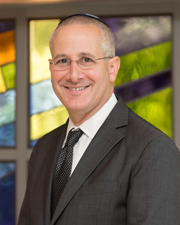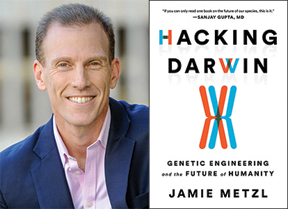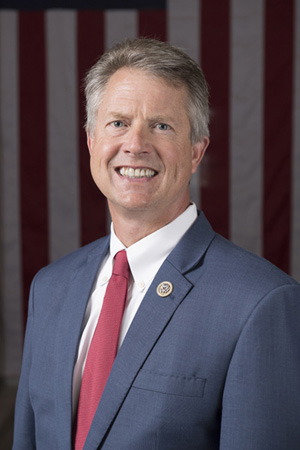
My mind is playing tricks on me.
Last week I spent three days in Washington, D.C., at the AIPAC Policy Conference, and I thought I heard speaker after speaker express support for the U.S.-Israel relationship.
I thought I saw 18,000 people, some Democrats and some Republicans, singing together.
I thought I saw more than 4,000 students from every corner of the U.S. come together to secure the future of the pro-Israel movement.
I thought I had breakfast with three progressive Israeli activists.
I thought I saw six freshman members of Congress — three Democrats and three Republicans — standing together expressing their commitment to bipartisan support for the U.S.-Israel relationship at a time when such bipartisanship is in short supply.
I thought that’s what I did for those three days.
But I must be wrong.
I read Dana Milbank’s March 26 op-ed column in the Washington Post, “Netanyahu’s AIPAC speech is a knife in the heart of the U.S.-Israel Alliance,” and realized I must have been somewhere else.
Focusing on the speeches by Prime Minister Benjamin Netanyahu, Vice President Mike Pence and Senate Majority Leader Mitch McConnell, Milbank found only ugly, overt partisanship and concluded:
“As the AIPAC hard-liners condone such chutzpah, cheering the dishonest and partisan jabs of Netanyahu and the Republicans, do they not see that this destroys the American political consensus that has preserved the Jewish state for 70 years?”
And I was left confused. You see, here’s how I spent my weekend:
Sunday morning I went to the General Session that began with AIPAC’s Howard Kohr giving a rousing speech decrying the partisanship that has overtaken American politics and is threatening the bipartisanship that is the hallmark of the pro-Israel movement. I heard Muriel Bowser, the Democratic mayor of Washington, D.C., share the same message. That afternoon, I listened as House Majority Leader Steny Hoyer shared his love of Israel and his commitment, as a Democrat, to continued support for the relationship between the two countries. The next morning New York Mayor Bill de Blasio, a proud progressive Democrat, took the stage and shared a similar message, as well as his commitment to fighting the growing scourge of anti-Semitism. Time and time again, Mayor de Blasio had to pause for extended standing ovations.
We heard from Sen. Tammy Duckworth, Rep. Eliot Engel, and Sen. Krysten Sinema. All of them are Democrats. We heard from Sen. Martha McSally, Ambassador Nikki Haley and Meghan McCain. All of them are Republicans. Sometimes the speakers from different political parties shared the stage. At other times they did not. But all of them spoke about their support for the U.S.-Israel relationship and the need to maintain bipartisan support for it, particularly at a time when bipartisanship is increasingly difficult to come by.
But none of those elements of my weekend made so much as an appearance in Milbank’s op-ed. Instead, Milbank writes:
“… the AIPAC crowd had ‘beyond a doubt’ become mostly pro-Trump conservatives, not the cross section of Israel supporters that AIPAC once drew.”
I must have been at a different conference.
During the conference I attended, I sat surrounded by Democrats AND Republicans. I had countless conversations with people who, despite our many differences in perspective, share my commitment to bipartisanship. I spent an hour speaking to Israeli students who wanted to learn more about being a progressive Zionist. I attended breakout sessions that addressed the challenges facing Israeli society and some of the ways in which people are working to address them. I lobbied a Democratic freshman member of Congress and was heartened to hear his commitment to the issues that brought me to Washington. The list goes on and on.
The AIPAC crowd has not “ ‘beyond a doubt’ become mostly pro-Trump conservative.” Yes, there are challenges, but these challenges are finding their way into every corner of discourse in the United States. AIPAC is one of the few organizations that is actively working to find common ground.
To be fair, Milbank is not entirely wrong.
Netanyahu was the divisive, bombastic individual we know him to be. But what do we expect from someone who used fear of “Arabs being bused in to vote” to gain support in the last election? His partisan rhetoric was disgusting but not surprising.
And Vice-President Pence and Sen. McConnell came to speak to an organization that is decidedly bipartisan and chose to use the time, in part, as an opportunity for partisan attacks on Democrats. (Pence even went so far as to quote the false narrative from MoveOn.org claiming that most Democratic candidates for president were boycotting the event.) Their words were divisive, rude and unhelpful in their partisanship.
But they weren’t the only speakers, and their divisive message was in stark contrast to the general tenor of the event. And what an event it was! Eighteen thousand people — Jewish and Christian, black and white, labor and management, and yes, Democrats and Republicans — came together to show their agreement that the values Israel and the U.S. share matter and strengthening our alliance makes the world a better place.
And so I read Milbank’s op-ed and so many of the other articles that were written about the conference and I am confused. The event they describe wasn’t my experience. And I am left trying to figure out where I was those few days. One thing is for certain: I wasn’t at the same AIPAC Policy Conference that Dana Milbank wrote about.
This article was originally published by The Times of Israel. Rabbi Daniel Cohen was ordained in 1993 by the HUC-JIR and has served Temple Sharey Tefilo-Israel since 1993.





